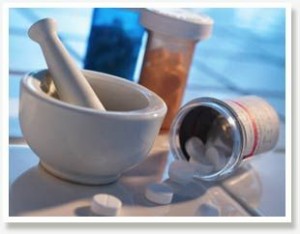Regulatory Oversight in Drug Compounding on the Rise
July 18th, 2018 // 12:14 pm @ jmpickett
Drug compounding until very recently has had a lot looser regulation than that of pharmaceutical drugs. The looser regulations served a real function: It allowed people who need a very specific drug formulation that was not available in a widely manufactured product. This could include discontinued drugs or specific forms of current drugs that do not contain one particular ingredient to which the patient is sensitive.
Drug compounding also can alter the drug form for the patient who is unable to take a regular drug in the form in which they exist on the open market.
However, now that compounding of drugs has turned into such a large industry, drug regulators are hard at work to better ensure that quality and safety of compounded drugs.
The big difference between a pharmaceutical drug manufacturer and a drug compounding plant is that the former has to have approval from FDA before marketing drugs to the public. Drugs from a compounder are not tested for safety and quality. However, after a major meningitis outbreak in 2012 and 2013 that killed dozens of people due to bad batches of steroid injections from a drug compounder, Congress passed a new law: The Drug Quality and Security Act of 2013.
It also passed the Compounding Quality Act. Both of these new laws set up an entirely new regulatory regime that regulates all drug compounding facilities. All of these pharmacies and facilities should note that FDA is soon going to release the final rules that fully implement all of the provisions of these laws.
The CQA has two types of compounders: outsourcing facilities and traditional drug compounders. Traditional compounders, which include the small pharmacies that do drug compounding based upon individual prescriptions or in very small quanities, will meet certain requirements that will probably exempt them from many rules of the new CQA. That will leave them to be mostly regulated by the states in which they operate. Any deviations from those exemptions will cause these pharmacies to be inspected by FDA agents and they could face enforcement actions.
The second type created by the new law is for outsourcing facilities. These plants have to adhere to strict CQA standards. For example, the drug compounding has to be done at a licensed pharmacy and by a licensed pharmacist. The drug compounding has to be done related to a specific prescription, and each facility has to be registered with FDA.
Each plant has to have procedures for adverse events, and bulk drug ingredients have to have FDA approval. They also must be in the US Pharmacopeia or possess a monograph in the National Formulary.
A compounded drug is not allowed to contain anything that is ineffective, unsafe or is just a copy of another drug. It also must not be hard to compound, which could result in efficacy, quality and safety problems. The compounded drugs cannot be wholesaled, and the compounding facility has to be up to date with all of its fees.
The drug compounding has to happen in a state that has a memorandum of understanding with FDA about the drug compounding program, and the specific limits on these types of outsourcing facilities.
Outsourcing facilities also have to follow cGMP guidelines, which are the same that apply to pharmaceutical and API manufacturers.
The final rules have not yet been released, but all compounding facilities should start taking proper compliance steps now.



